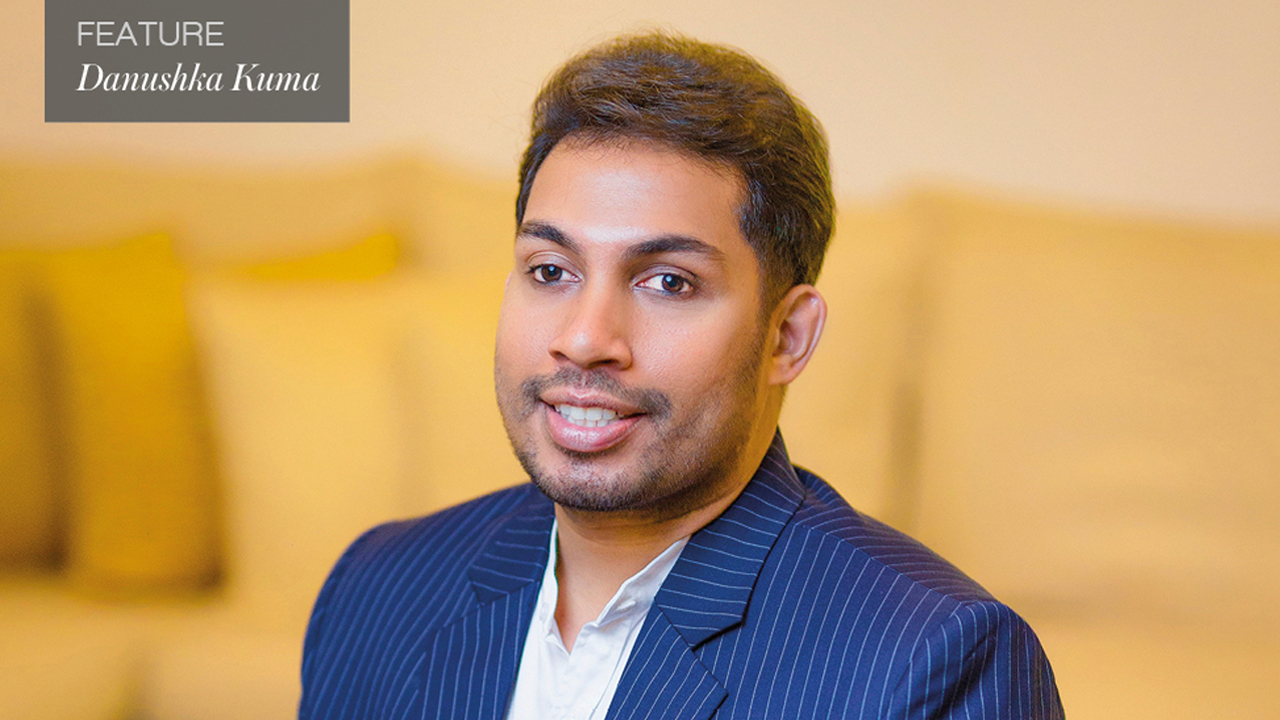The Unconventional Marriage
by Editorial
Majority of today’s marriages are unconventional in someway or the other, so to speak. Whatever the reason may be, many of us are convinced the unconventional marriage is very much convectional in the given society or circumstances. Sri Lankan marriages were the epitome of conventional marriage, but long gone are the days. Although some still strongly believe in the concept, many have moved on to accept the changes our society and lifestyles have taken, that have now mended our cultures and its outlook on marriage. But in the process, is the sanctity of marriage sacrificed? What are in inflictions of such marriages? What’s the fate of the unconventional marriage?
Senior marriage counselor Nalini Karunaratne addresses this vexed issue to help you clear your doubts, if you are entering such a marriage…
Marriage fulfills the basic need of man for love and affection. It is one of the oldest social, economic, religious and legal institutions in the world. It is a process by which two people make their relationship public, official and permanent. Over the course of a marriage relationship, that can last as long as seven to eight decades, many changes take place. Personalities can change, bodies age, romantic love waxes and wanes, and no marriage is free from conflict.
The concept of marriage has evolved greatly over time and the views on marriage have sifted over the past decades and there are many opinions on what makes it work. In many ways it is simply a reflection of life in our society. So the changes in the way we view marriage simply reflect changes in society as a whole.
Conventional marriage refers to what is generally accepted by people based on what is common at a specific time in a specific culture. The goal of conventional marriage was permanency. Traditionally, it was viewed as a sacred bond intended to last until death. There was no freedom in the choice of a partner and a marriage was generally arranged by parents or elders who took into consideration ethnicity, family background, social status, religion, wealth and so on. Virginity was also considered important. Further, conventional marriage was based in many ways, on the biological difference between man and woman. Economically, man was considered the provider of income for the home and other responsibilities in the marriage were generally designated by gender. Marriage, at that time was intended to preserve and strengthen the family unit and also the extended family.
Then, as far back as 18th century, with the Industrial Revolution and mechanization and the resultant decrease in the need for man-power, the need for a strong extended family was not so necessary. The liberation of women, the rise of feminism and the equality of the sexes led to employment for both husband and wife. These changes had a drastic impact on marriage and family life. It resulted in the formation of the nuclear family unit and gradually over time the conventional marriage traditions gave way to the unconventional marriages of today which are considered the norm.
There are many differences to be observed between conventional and unconventional marriage brought about by the changes in social needs and values. The reasons for marriage underwent change and the reasons for unconventional marriages are diverse. With globalization and the increase of travel, people migrated to different parts of the world and many marriages were made solely to facilitate this emigration. A marriage was contracted with a person who held the citizenship in a country of your choice, you receive the sponsorship for migration and once that has been accomplished the marriage is terminated. A fee maybe also levied by the sponsor for this service.
Ethnicity is not a consideration in an unconventional marriage and marriages to persons of different nationalities are very common. Marriages are also contracted to enhance professional careers or to increase your self-image with wealth or a prestigious family name and to acquire social status, power and recognition.
The marriageable age is also variable and marriage is considered generally after professional qualifications have been acquired and a job secured and a reasonable measure of independence acquired. The age of marriage for females is generally in the range of 30 and 40 years and the male from 35 to 45 years. However, there are marriages among older persons of either gender too, and reasons range from security to compassion to companionship.
Some cultures advocate multiple wives, and the latest trend is the same sex marriages which have been legally recognized in many countries
Many young people believe today that marriage should be of a temporary nature. Researchers have found that a quarter of the 18 to 24 year old age group is of the opinion that marriage should be a temporary contract with a renewal date and the opportunity to ‘upgrade’ to another partner! A third of this group also backed polygamy, and 30% supported ‘fluid arrangements’ where people could move between different partners. So despite all the rhetoric about the importance of marriage, the message is not coming through. In a poll of 2,002 adults of all age groups also found that almost half of them support ‘no reason divorces’ where somebody does not have to justify ending a marriage. 75% said that there should be a cooling-off period before a divorce is finalized to give couples a chance to change their minds. Multiple marriages, interspersed with unmarried relationships, are considered the norm for most people, with very few negative societal consequences.
Our society values progress, independence and freedom, and these have been reflected by our attitude to marriage. We no longer seem to value stability and commitment. But the question is, are we better off? Perhaps the key is how we use our independence and freedom. It is hard to pursue a dream when you don’t know what it is and who you are inside. Perhaps when we learn the value of introspection, we will be able to improve society by blending the best values throughout our history. When we can honor independence and responsibility, as well as freedom and commitment, we will have something very special in marriages in our society.
Related Articles
-
 Busting the Age Old Myths about the Poruwa Ceremony
Busting the Age Old Myths about the Poruwa Ceremony -
 Renaissance of Wedding Artistry - Hamna’s Sensational Wedding Creations…
Renaissance of Wedding Artistry - Hamna’s Sensational Wedding Creations… -
 Sundara by Mosvold - Luxuriate in Seclusion on Your Honeymoon
Sundara by Mosvold - Luxuriate in Seclusion on Your Honeymoon -
 Will you Honour & Obey? - The rules of marriage in a modern world…
Will you Honour & Obey? - The rules of marriage in a modern world… -
 Curating to perfection - Wedding Planners to the rescue
Curating to perfection - Wedding Planners to the rescue -
 FEATURE – Dhanushka Kuma
FEATURE – Dhanushka Kuma -
 Skin-tillating Wax for your Happily-Ever-After
Skin-tillating Wax for your Happily-Ever-After -
 Younger Looking Skin – Look like You’re 20 on Your Wedding Day
Younger Looking Skin – Look like You’re 20 on Your Wedding Day -
 The Picture Perfect Ice Breakers – Locations that are ideal for creating the memorable Pre wedding photo -shoots
The Picture Perfect Ice Breakers – Locations that are ideal for creating the memorable Pre wedding photo -shoots